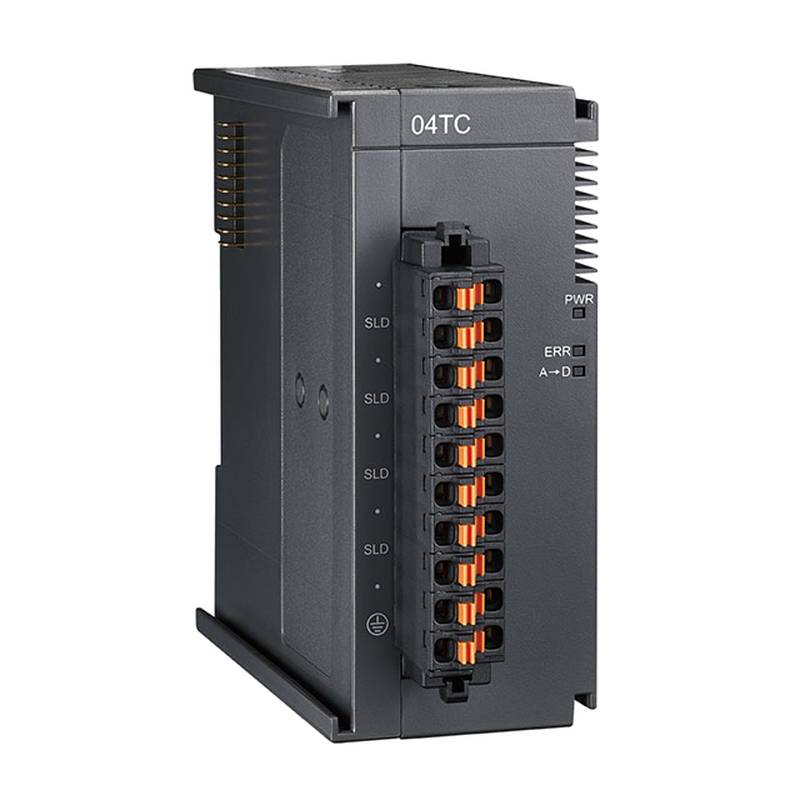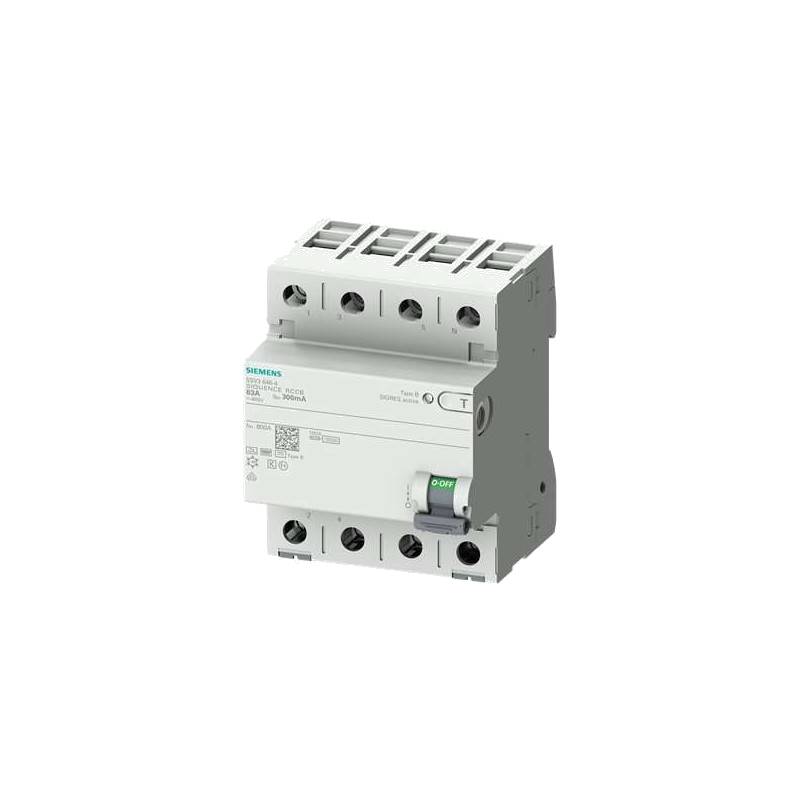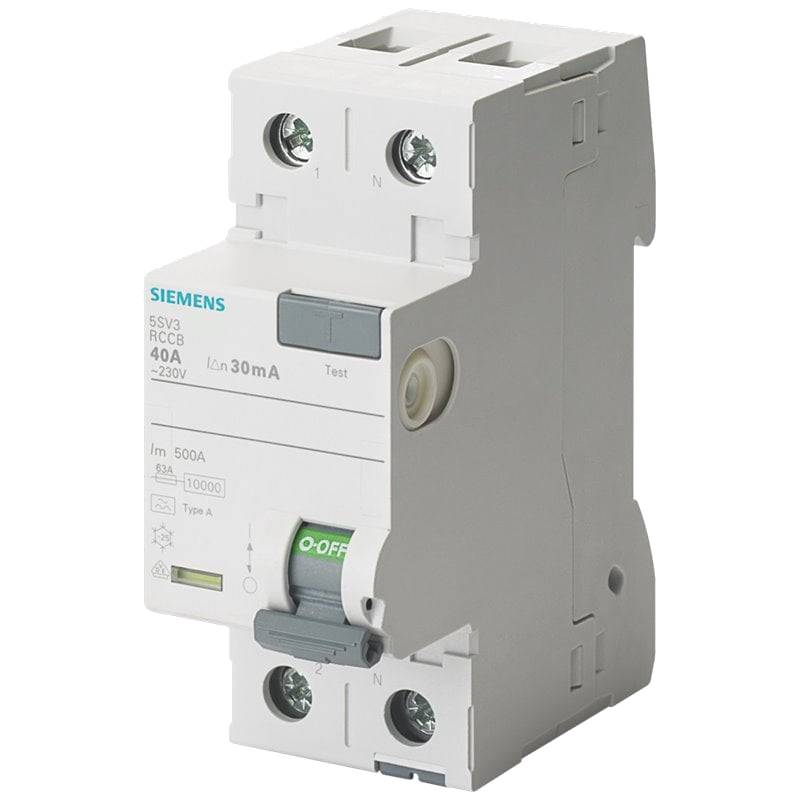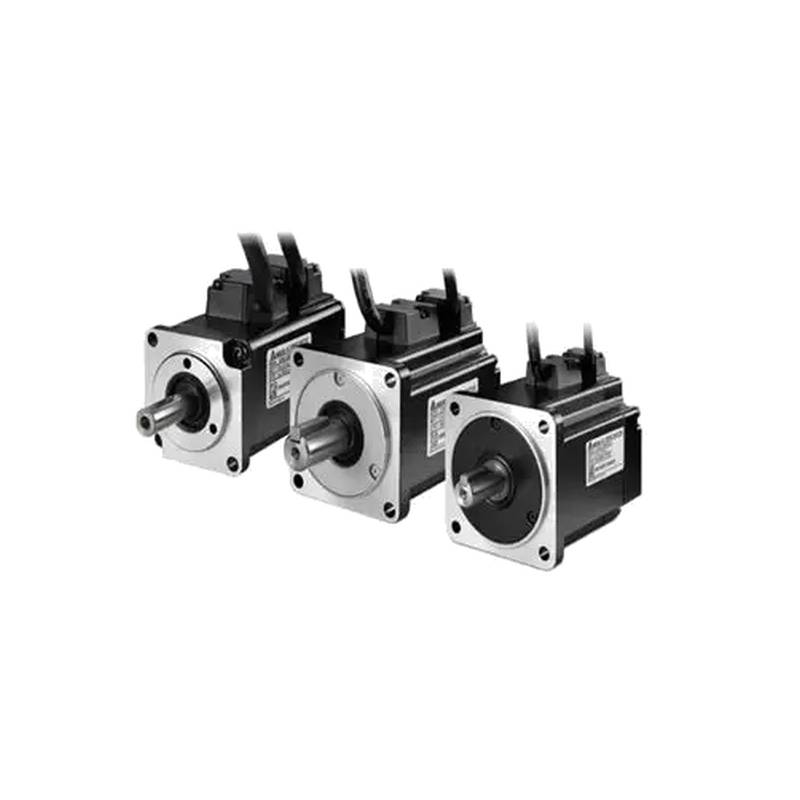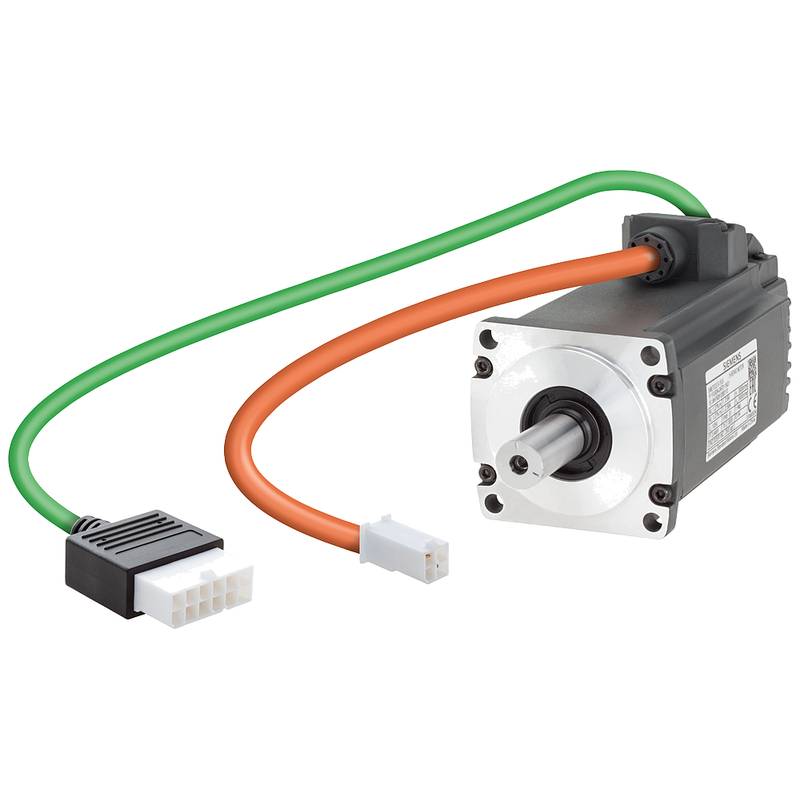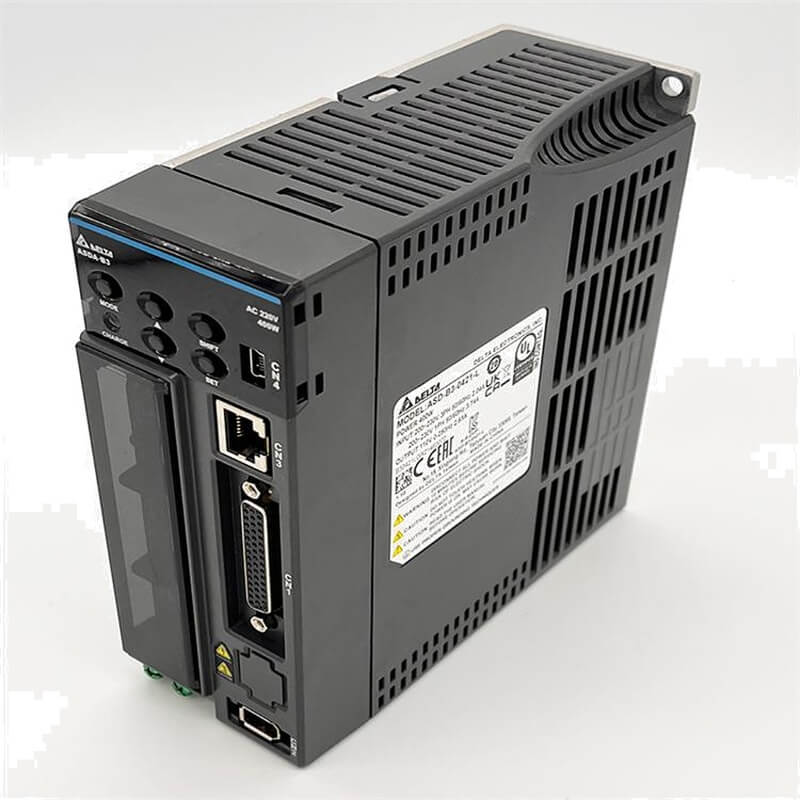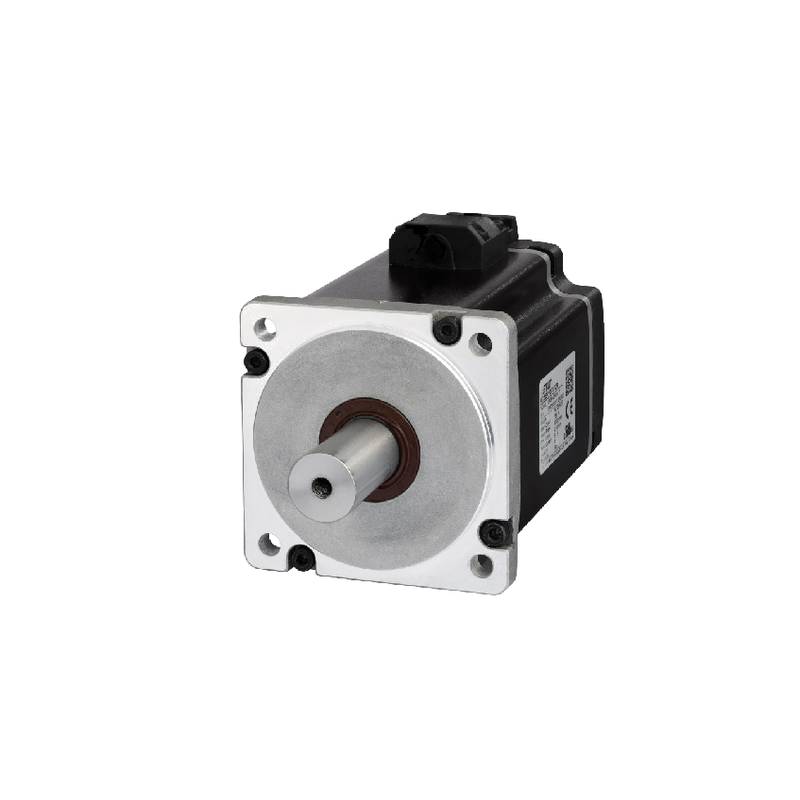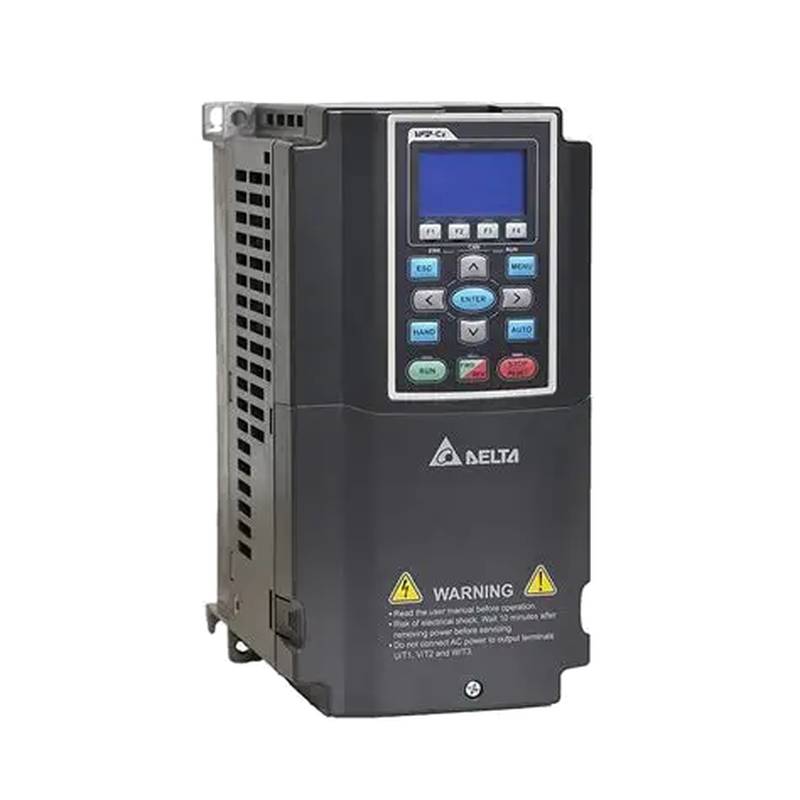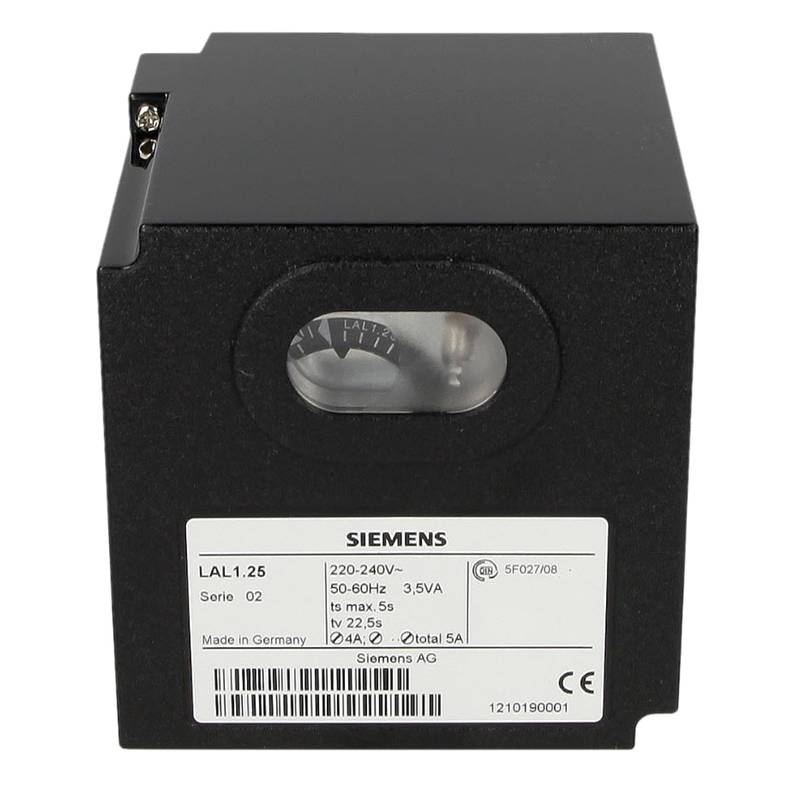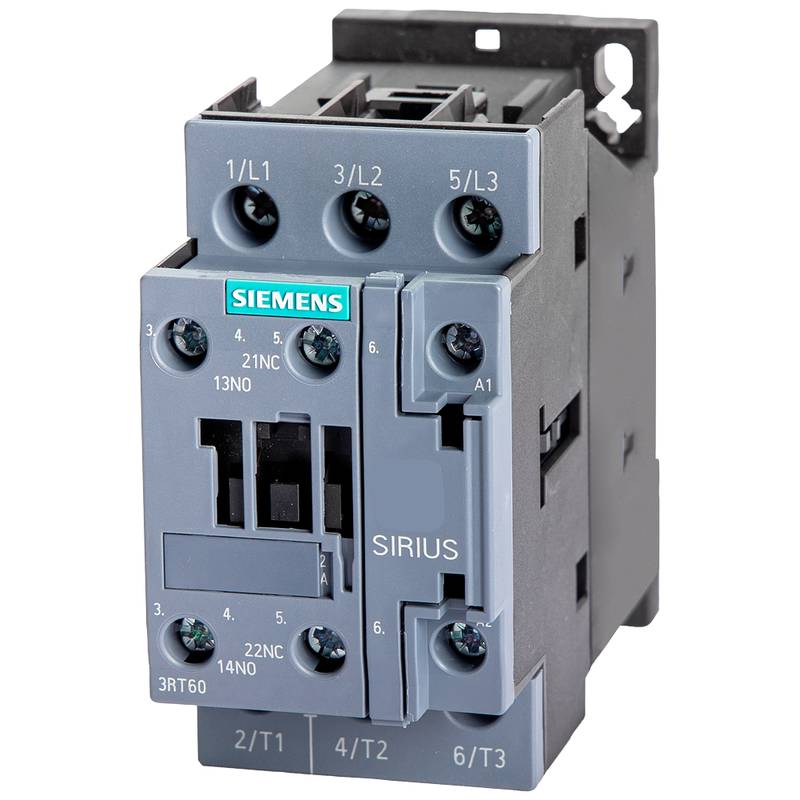
The Delta AS04TC-A 4-channel Thermocouple Temperature Input Module offers robust and accurate temperature measurement for demanding industrial applications. This module distinguishes itself through its high precision, rapid response time, and seamless integration into Delta's automation platforms. Key technical parameters include its 4-channel thermocouple input capability, wide temperature measurement range, and superior noise immunity, ensuring reliable data acquisition even in harsh environments.
Product Specifications
| Feature | Specification |
| :---------------------- | :-------------------------------- |
| Module Type | 4-channel Thermocouple Input |
| Input Channels | 4 |
| Supported Thermocouples | J, K, T, E, R, S, B, N (configurable) |
| Measurement Range | Varies by thermocouple type (e.g., -200°C to 1820°C for Type R) |
| Resolution | 16-bit |
| Sampling Rate | Configurable |
| Accuracy | ±0.5% of full scale (typical) |
| Isolation | Channel-to-channel and channel-to-ground |
| Communication Interface | Delta AS/AP Series PLC compatible |
| Power Supply | 24V DC |
| Operating Temperature | -10°C to 55°C |
| Dimensions | Standard AS Series module size |
Core Features & Market Positioning
The Delta AS04TC-A excels in providing high-density thermocouple inputs within a compact form factor, making it an ideal choice for panel builders and system integrators seeking efficient space utilization. Its advanced analog-to-digital conversion ensures precise temperature readings critical for process control, preventing costly deviations and ensuring product quality. The module's robust design and built-in diagnostics contribute to high system uptime and reduced maintenance, positioning it as a reliable component in critical automation architectures. Unlike generic input modules, the AS04TC-A is specifically engineered for thermocouple signals, offering dedicated signal conditioning and linearization for each thermocouple type, thereby eliminating the need for external converters and simplifying system design.
Key Application Scenarios
This versatile thermocouple input module is frequently deployed in industries requiring precise temperature monitoring and control. Common scenarios include high-temperature furnace monitoring in metallurgy and ceramics, where consistent temperature profiles are essential for material integrity. In the chemical processing industry, it plays a vital role in reactor temperature control, ensuring safety and optimal reaction yields. The food and beverage sector benefits from its application in pasteurization and sterilization processes, guaranteeing product safety and quality through accurate temperature management. Furthermore, it is integral to power generation facilities for monitoring boiler and turbine temperatures, contributing to operational efficiency and predictive maintenance.
Practical System Integration Guidance
Integrating the Delta AS04TC-A module into a Delta automation system is streamlined through its direct compatibility with AS and AP series PLCs. Installation involves securely mounting the module onto a DIN rail and connecting it to the PLC's backplane via the designated connector. Wiring the thermocouple leads requires strict adherence to polarity and proper shielding to prevent electrical noise interference; always consult the module's manual for specific terminal assignments for each thermocouple type. For programming, users will typically configure the module's input type, range, and filtering parameters within the PLC's development software, such as Delta's WPLSoft. Data acquisition is then accessed through memory addresses mapped to the module's channels, allowing for straightforward incorporation into control logic or HMI displays.
Operation and Risk Mitigation
Safe operation of the Delta AS04TC-A module mandates adherence to specified voltage and environmental conditions. Users must ensure that the connected thermocouples are correctly identified and configured within the PLC program, as incorrect settings can lead to erroneous readings and potential process upsets. Fault detection mechanisms are built into the module, reporting open-circuit or short-circuit conditions of thermocouple lines. For instance, an open thermocouple typically results in a specific error code that can be programmed for alarm generation or fallback operation, thereby mitigating risks associated with undetected temperature failures. Always implement proper grounding techniques to safeguard against transient voltage surges.
Scalability & Long-Term Value
The Delta AS04TC-A offers excellent scalability within Delta's automation ecosystem. Its modular design allows for easy expansion by adding more AS04TC-A modules or other I/O modules as process requirements evolve, ensuring that the automation system can grow with the plant's needs. Compatibility with existing Delta PLC platforms ensures a long product lifecycle and straightforward upgrades, minimizing the need for complete system overhauls. The module's data output is readily integrable with SCADA systems and industrial IoT platforms, facilitating advanced analytics, remote monitoring, and the implementation of smart manufacturing strategies, thereby enhancing long-term operational efficiency and data-driven decision-making.
Frequently Asked Questions
1. What types of thermocouples are compatible with the Delta AS04TC-A?
The Delta AS04TC-A supports a wide array of standard thermocouple types, including J, K, T, E, R, S, B, and N. This broad compatibility ensures flexibility in selecting the appropriate sensor for diverse temperature ranges and application environments. Careful selection based on the specific process temperature and required accuracy is crucial for optimal performance and longevity of the sensor and module.
Each thermocouple type has a defined range and characteristic curve, which the AS04TC-A module is designed to accurately interpret. The module allows for software configuration to match the specific thermocouple type being used. This configuration is essential for accurate linearization and scaling of the temperature readings, ensuring precise process control.
Ensuring proper wiring and shielding for each thermocouple type is critical to maintaining signal integrity and preventing noise. Consulting the module's technical manual for the exact pinout and recommended wiring practices for each supported thermocouple type is highly recommended to avoid signal degradation and ensure reliable data acquisition.
2. How do I calibrate the Delta AS04TC-A module?
The Delta AS04TC-A module is factory calibrated to provide high accuracy out of the box. For most industrial applications, this factory calibration is sufficient and does not require user intervention. However, for applications demanding extremely high precision or if drift is suspected over time, recalibration might be considered.
Recalibration typically involves comparing the module's readings against a certified temperature standard at several points across its operating range. This process is usually performed by trained technicians using specialized calibration equipment. The results are then used to adjust the module's internal parameters, if the hardware and software allow for user-adjustable calibration offsets or gains.
It's important to consult the official Delta documentation for the AS04TC-A module to determine if user-level calibration is supported and to understand the correct procedure. Many industrial input modules rely on software compensation rather than hardware adjustments for calibration.
3. What is the typical accuracy and resolution of the AS04TC-A module?
The Delta AS04TC-A module typically offers an accuracy of ±0.5% of the full scale, ensuring reliable temperature measurements for most industrial processes. This level of accuracy is crucial for maintaining process stability and product quality, preventing costly deviations and ensuring operational efficiency.
The module boasts a 16-bit analog-to-digital converter (ADC), which translates to a high resolution for temperature readings. This high resolution allows for the detection of small temperature variations, which is essential in applications requiring fine control or detailed analysis of thermal trends.
The actual measured accuracy and resolution can be influenced by factors such as the specific thermocouple type used, the connected cable length, and environmental electromagnetic interference. Proper installation and shielding practices are therefore vital to achieve the module's stated performance specifications.
4. How does the AS04TC-A handle electrical noise and interference?
The Delta AS04TC-A module incorporates robust electrical isolation between channels and between channels and ground. This isolation is a key feature for mitigating the impact of electrical noise and ground loops, which are common in industrial environments.
Additionally, the module is designed with inherent noise filtering capabilities. These filters help to suppress high-frequency noise that can corrupt the thermocouple signal, ensuring cleaner and more reliable temperature readings. Proper shielding of thermocouple wiring, running cables away from power lines, and good grounding practices further enhance noise immunity.
For critical applications, users can further improve noise rejection by configuring the module's sampling rate and employing software-based filtering algorithms within the PLC program. These advanced techniques can help to smooth out noisy signals and provide more stable temperature data for control purposes.
5. Can the AS04TC-A module be used with different PLC brands?
The Delta AS04TC-A 4-channel Thermocouple Input Module is specifically designed and optimized for seamless integration with Delta's own AS and AP series Programmable Logic Controllers (PLCs). Its communication protocol and physical connector are tailored for this ecosystem.
While theoretically it might be possible to interface it with PLCs from other manufacturers through complex gateway solutions or custom communication protocols, this is not the intended use case and would likely be highly impractical and unsupported. Such an approach would negate the benefits of plug-and-play integration and require significant engineering effort.
For reliable and efficient operation, it is strongly recommended to use the Delta AS04TC-A module exclusively within a Delta automation system. This ensures full compatibility, access to configuration software, and direct technical support from Delta.
6. What is the typical response time for temperature changes detected by the AS04TC-A?
The response time for detecting temperature changes with the Delta AS04TC-A module is influenced by several factors, including the thermocouple's own thermal mass and response characteristics, as well as the module's configured sampling rate. The module itself processes readings quickly, but the overall system response is a combination of sensor and module performance.
The module allows for configurable sampling rates, meaning users can adjust how frequently the module acquires new temperature data. A faster sampling rate will result in a quicker detection of temperature fluctuations, which is beneficial for dynamic processes requiring immediate control action.
However, selecting an excessively fast sampling rate without considering the thermocouple's response time or potential for introducing noise might not yield significantly better control. It's a balance between responsiveness and signal stability, often determined through process analysis and tuning.
7. How is the AS04TC-A module powered, and are there specific power supply requirements?
The Delta AS04TC-A module operates on a standard 24V DC power supply. This is a common voltage level used throughout industrial automation systems, facilitating easy integration with existing power distribution infrastructure.
It is crucial to use a regulated and filtered 24V DC power supply to ensure stable operation and prevent potential issues caused by voltage fluctuations or noise from the power source. The specific current requirements for the module should be checked in the product datasheet, especially when calculating the total load on the power supply if multiple modules are used.
The module typically draws power from the PLC's power supply or a dedicated auxiliary power supply connected to the PLC rack. Proper wiring of the power terminals on the module and ensuring a solid connection are essential for reliable operation.
8. What are the environmental operating conditions for the Delta AS04TC-A?
The Delta AS04TC-A module is designed for typical industrial environments and has an operating temperature range of -10°C to 55°C. This allows it to function reliably in a wide variety of manufacturing and processing settings.
Beyond temperature, considerations for humidity and vibration are also important for industrial equipment. While specific humidity ratings should be confirmed in the datasheet, industrial modules generally withstand moderate levels of humidity. Protecting the module from excessive moisture, dust, and corrosive atmospheres is always advisable.
Proper ventilation within the control cabinet is also important to maintain the module within its specified operating temperature range, especially when multiple modules are installed or the ambient temperature is high. Ensuring the enclosure is appropriately rated for the environment is key.
9. Can I use extension cables with thermocouples connected to the AS04TC-A?
Yes, extension cables can be used with thermocouples connected to the Delta AS04TC-A module, provided they are specifically designed for the thermocouple type being used. Using the correct type of extension wire is critical to maintaining measurement accuracy.
Standard extension wires are made of the same or similar alloy as the thermocouple but are designed to be more economical for longer runs. Using an incorrect extension wire type (e.g., using Type K extension wire with a Type J thermocouple) will introduce significant errors into the temperature measurement.
It is also important to consider the resistance added by long extension cables, as this can affect accuracy, particularly with certain thermocouple types. Proper shielding of extension cables is also recommended to minimize electrical noise pickup, especially in electrically noisy industrial environments.
10. How does the AS04TC-A integrate with Delta's broader automation solutions like HMI or SCADA?
The Delta AS04TC-A module seamlessly integrates with Delta's Human-Machine Interface (HMI) panels and SCADA (Supervisory Control and Data Acquisition) systems. As it communicates via the PLC's backplane, the temperature data it acquires is readily accessible to these supervisory systems.
Configuration within the PLC programming software allows for the data points from the AS04TC-A module to be mapped to specific registers or memory addresses. These addresses can then be easily linked to tags within the HMI design software or SCADA configuration tools.
This integration enables operators to visualize real-time temperature readings on the HMI, create historical trending charts, set alarms for temperature deviations, and implement complex control strategies. For SCADA systems, the data can be logged for analysis, reporting, and integration into plant-wide manufacturing execution systems (MES).














